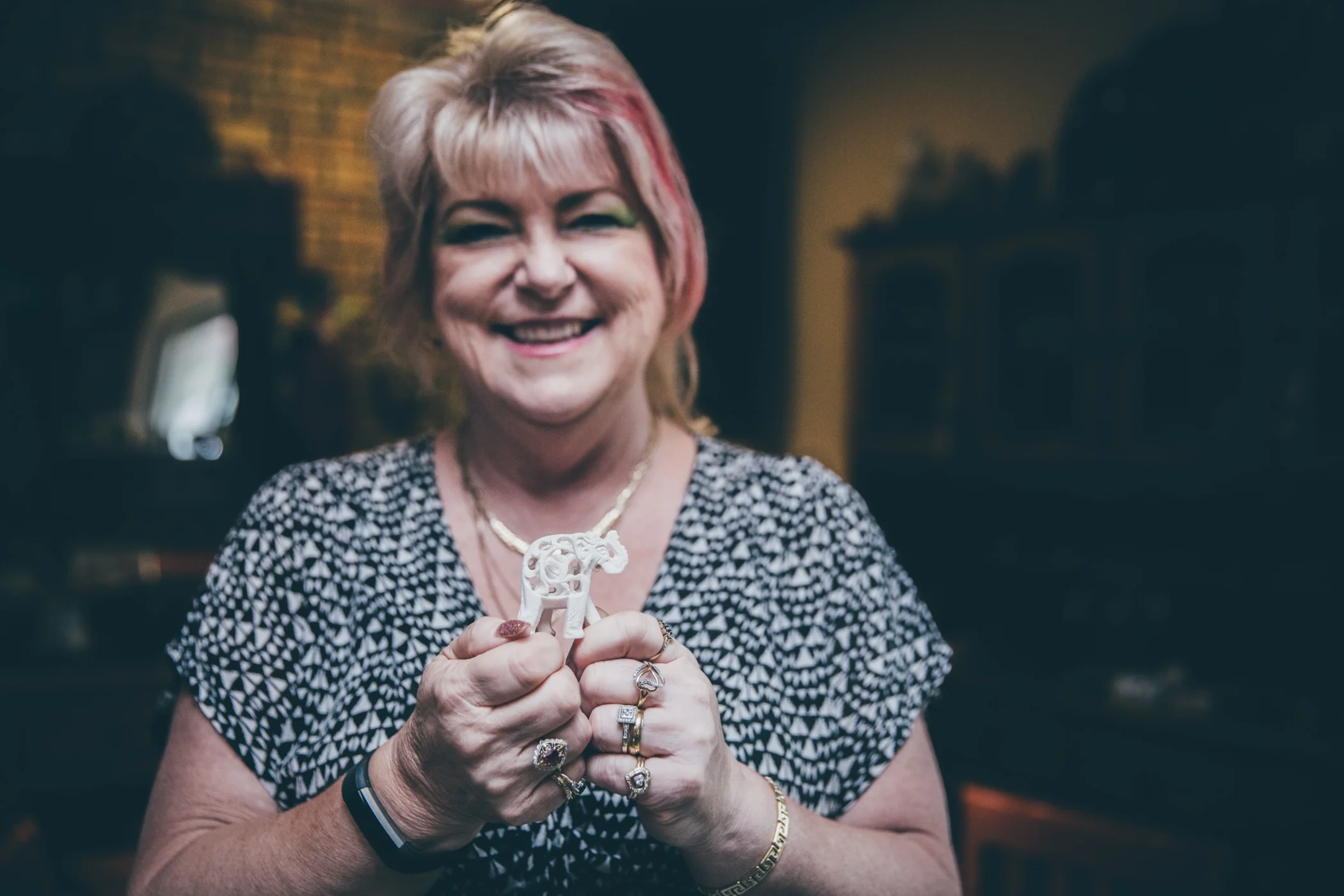Kwinana is a beautiful place. All of our children have bought their homes here. We’re happy little Vegemites.
**
I was born in Liverpool, Wavertree, 1953. I can remember the snow, I can remember always being sick ‘cos I was asthmatic and still am (which is one of the reasons why the family moved to Australia, to try and help me get better).
We left England on Guy Fawkes night, 1962.
Back then, Australia had the all-White Australia Policy. So, if you were pregnant, you were not allowed to come to Australia, because they couldn’t guarantee just ‘cos your husband was white, that the baby would be white. And my mum was pregnant with my youngest sister. And when we got to the part where you had to do a urine specimen, my mum, she poured some of my sister’s bottle into her bottle, ‘cos otherwise we wouldn’t have been allowed to have come.
My last meal in England was beans on toast in this little café in London not far from the palace. And then we got on the boat and I was violently ill for about a week. We were the only passengers that were allowed to have the whole family together in our cabin; all the others were segregated.
We were in the camp for three weeks and we arrived in Medina on 19 December.
Our neighbour was Australian, and they said to my mum the day before Christmas, she said ‘don’t forget’, she said, ‘to make sure the girls are out the front on Christmas morning’. We had no idea what she was going on about. But, we heard all this commotion in the street, there were bells and horns beeping, and it was the lolly run, which Doug and I now do. Every child got a bag of sweets, thrown at by Santa on the back of a truck. I think I must have still believed in Santa at the time, and thought ‘wow, this is strange! You know, Father Christmas drives down your street!’
We made friends with a couple of Australians up in the street, and they said ‘oh, come over, we’re gonna have some friends over, oh, just bring a plate.’ So my mum, she got five or six plates, and my dad said ‘what are you doing with them?’ And she said ‘oh, well the woman hasn’t got enough plates for us.’ So she went up there with these six dinner plates and the woman actually meant bring a plate of food. But we never had that in England. You didn’t say to somebody ‘bring a plate’. And my mum was so embarrassed.
A lot of the Australians picked on the English. I went to Medina Primary School and I got called ‘Omo’ because I was so white: ‘Omo washing powder makes you whiter than white’. People ridiculed me about my accent. But I never thought of myself as being anything different, always was English, until we [Doug and I] both became naturalised on the same day. And I even now, when people say, you know, ‘what’s your nationality’, I say ‘British born but Australian by choice’.


